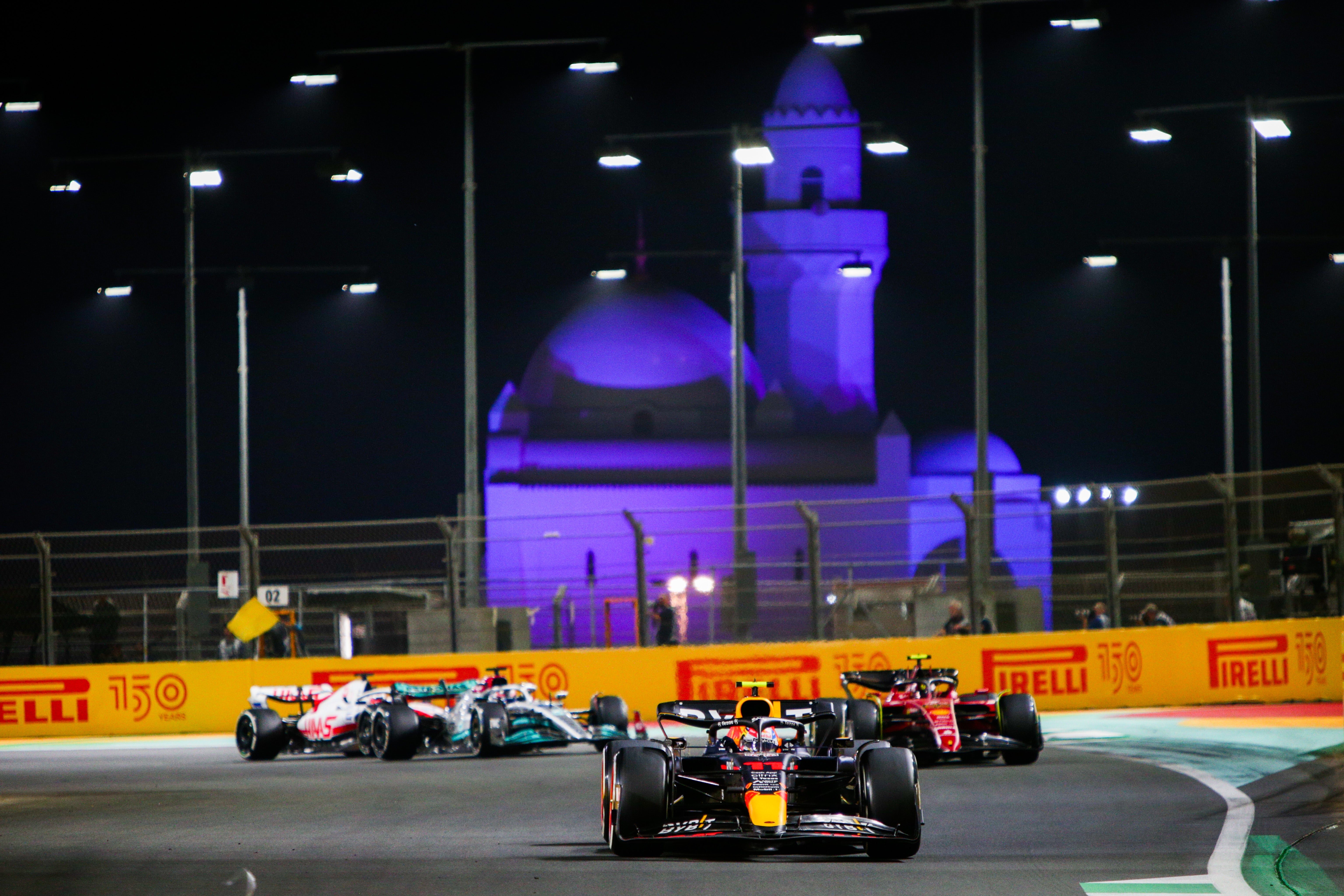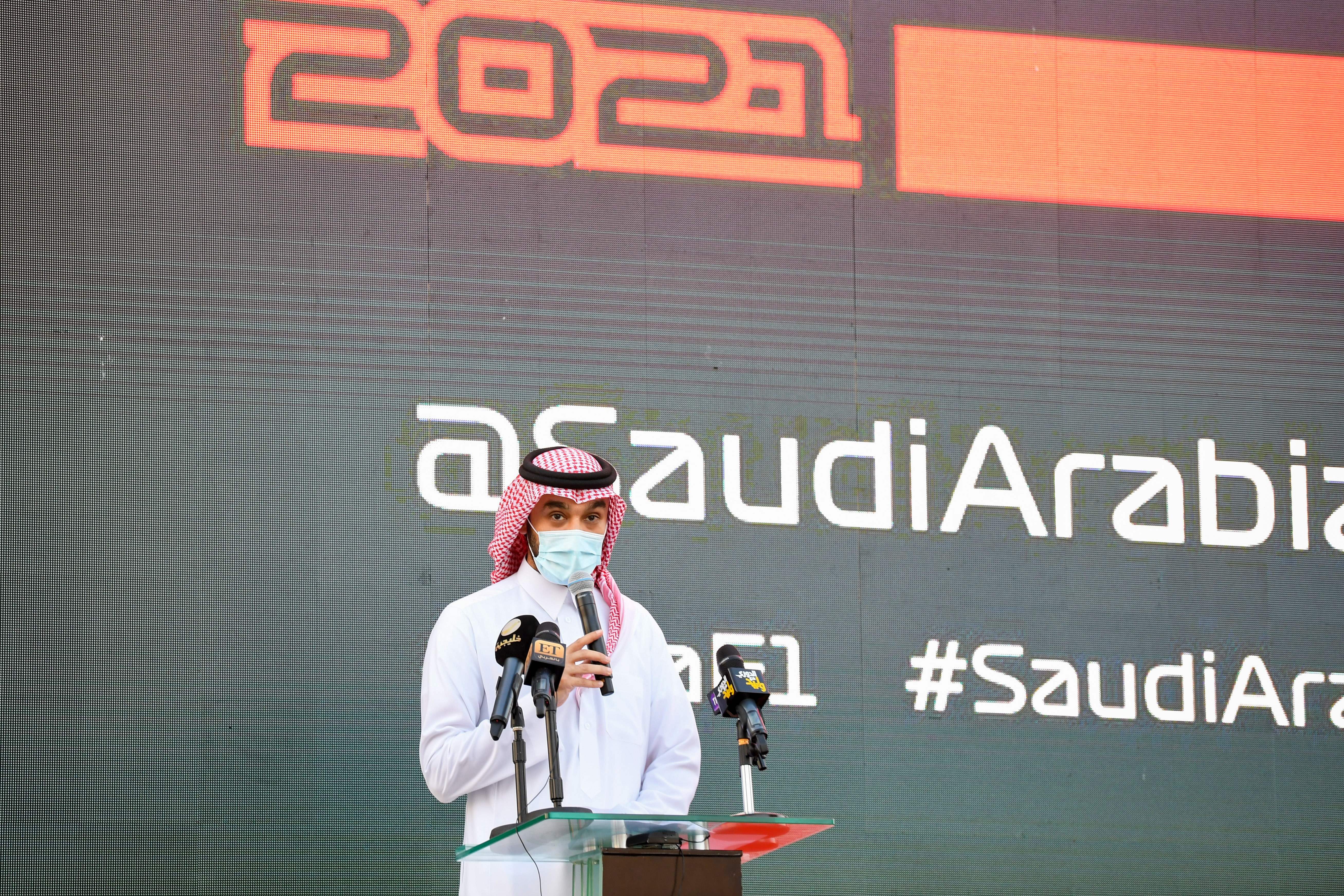Saudi Arabian government will offer Formula 1 ‘whatever they want’ in attempt to ensure return
Saudi Arabia has faced strong criticism from humanitarian organisations for its human rights record

Your support helps us to tell the story
From reproductive rights to climate change to Big Tech, The Independent is on the ground when the story is developing. Whether it's investigating the financials of Elon Musk's pro-Trump PAC or producing our latest documentary, 'The A Word', which shines a light on the American women fighting for reproductive rights, we know how important it is to parse out the facts from the messaging.
At such a critical moment in US history, we need reporters on the ground. Your donation allows us to keep sending journalists to speak to both sides of the story.
The Independent is trusted by Americans across the entire political spectrum. And unlike many other quality news outlets, we choose not to lock Americans out of our reporting and analysis with paywalls. We believe quality journalism should be available to everyone, paid for by those who can afford it.
Your support makes all the difference.The Saudi Arabian minister for sports says his government will give Formula 1 and its stakeholders “whatever they want” in order to return to the country to race again in future.
Formula 1 first raced in Saudi Arabia last December and did so again last weekend, against a backdrop of human rights abuses in the country and the bombing of a state-owned oil facility just ten kilometres from the Jeddah street circuit where the grand prix was held.
The current agreement between F1 and Saudi Arabia is understood to last until 2025, with the Saudi government paying a record-breaking $55m per year to host the event, but its future has been thrown into doubt after drivers threatened to boycott last weekend’s race in the wake of the Aramco missile attack.
Drivers spent four hours locked in talks about whether or not they would race in Jeddah, eventually agreeing to do so only after being told that the event was secure, and that flights out of Saudi Arabia could not be brought forward.
Now, drivers and team principals have requested talks about the Saudi Arabian Grand Prix’s future, and the way in which Formula 1 chooses its future destinations. Prince Abdulaziz Bin Turki Al-Faisal - the Saudi sports minister - said that his country will do whatever it takes to accommodate Formula 1.
“We haven’t got into the details yet but we are open to discussions,” he told the press. “We are open to sit down, see where the issues are, what the assurances are they need.
“Whatever they want, we are here to host F1 as best as it can be anywhere in the world. So we will definitely have an open discussion with them to see what their feedback is, to discuss with them and see what their concerns are about. We will show them everything.
“We are here for a long-term partnership for a reason, because we see where we’re going. We want to grow with the sport. We know the importance of F1 and we want to be part of the international community. We want to be present.
“We want everyone to come to Saudi Arabia and feel like as if they’re going anywhere else in the world. These issues unfortunately do happen, they happen everywhere in the world and we have to deal with them in the best possible way.”
Saudi Arabia has been heavily criticised by humanitarian organisations including Amnesty International for its record on human rights. It is an absolute monarchy, holding no democratic elections, and discriminates heavily against the rights of women and LGBTQ+ people.

Earlier this year it executed 81 of its citizens on a single day, and currently has a 17-year-old child on death row for a crime he was alleged to have committed at 14. The United Nations’ High Commissioner for Human Rights claimed more than half of the 81 killed on the same day were executed for taking part in pro-democracy protests. If the country continues at its current pace, it will kill over 500 of its own people in 2022 alone.
Meanwhile, a Saudi-led coalition has been bombing Yemen routinely since 2014. The UN says the violence has caused the greatest humanitarian crisis on Earth, with 24.1 million people in Yemen requiring aid. 337,000 deaths are estimated to have been caused by the war, and over 10,000 children have been killed or wounded by fighting. Houthi rebels in Yemen claimed responsibility for the Aramco attack in the aftermath last weekend.
Prince Abdulaziz, though, says that offering tourist visas for foreigners is a sign of great social progress in the country.
“We were always accused for being shut out,” he said. “The first tourist visa happened because of Formula E. It was the first time we issued tourist visas because of that event. From there, suddenly, we have gone from one of the most difficult visas to acquire to one of the easiest visas to acquire, with I think more than 50 countries’ visas upon arrival and so on.
“Nobody understood what Saudi Arabia is. We’re telling to the world come and understand what Saudi Arabia is, but now we’re being accused for being too open. We are doing things very, very, very quickly and so on. At the end of the day, there is a drive because of this. The people want this. If the people don’t want this, it would not have happened. But the people want this, they see, they’re all engaged in social media, they see what other countries have.”
Women's’ rights in Saudi Arabia remain heavily repressed, with the state using “an array of discriminatory practices and policies that disempower women and leave them vulnerable to abuse,” according to the deputy Middle East director at Human Rights Watch. But Abdulaziz bragged that recent changes meaning women are allowed to drive cars and work alongside men in some circumstances show progress, and are proof that the country is worthy of praise and patience.
“We’re a young nation. We’re learning, we’re moving forward, and we have a lot to develop on and a lot to prosper towards, and a lot to fix,” Abdulaziz said. “Change is being done. Today you can see women and men working cohesively everywhere in the kingdom, even in ministries, when they weren’t even allowed to go public areas before.
“So all of these things are a part of the change. Some of them we can change them very quickly. Some of them take time. But we’re here to listen, to talk, to discuss. I’m sure you’ve seen a lot of politicians have visited the kingdom in the past couple of weeks, and they’ve discussed all of these issues. So we are here to move forward and to make Saudi a better place, and to live for a better future.”
Of 180 countries ranked, Saudi Arabia was ranked 170th in the 2021 world press freedom index, and finished ahead of only ten other countries in the 2022 human freedom index.
Join our commenting forum
Join thought-provoking conversations, follow other Independent readers and see their replies
Comments